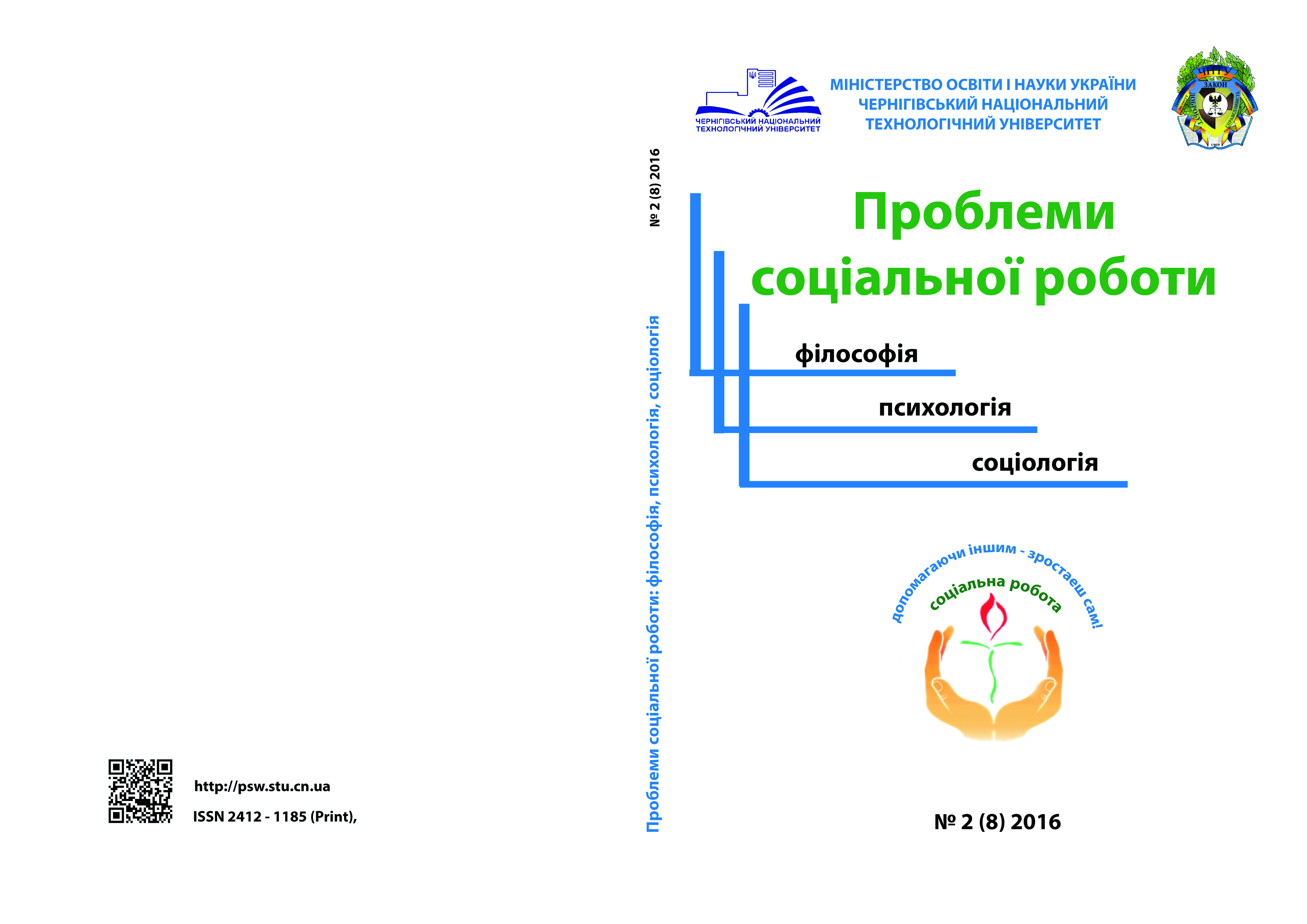ANALYSIS OF THE INDIVIDUALY-PSYCHOLOGICAL CHARACTERISTICS OF ECONOMIC SOCIALIZATION OF THE FUTURE SPECIALISTS IN THE SOCIAL SPHERE
Keywords:
economic socialization, future specialists in the social sphere, individual psychological characteristics of economic socialization, general abilities to entrepreneurship, locus of control, motivation vector, life values of personalityAbstract
Empirical analysis of the individual psychological characteristics of economic socialization of the future specialists in the social sphere has some results. Using of special question list gives the difference at the peculiarities of economic socialization by representatives of different specialty and year of studies. General abilities to entrepreneurship have middle level at overall sample. In that time, comparison of respondent ’s groups says that social workers have lower indicators than the la wyers and financiers. The indicator “propensity to creativity” gets the biggest level at social workers. The results of subject control test’s using are analyzed (“Locus of control” by G. Rotter). The locus of control’s dynamic at different year of studies in university (from start of education to the end) is found. The locus of control has changed at internal to external vector for education period (the lawyers and financiers). These indicators are characterized as the results of traditional approach in higher education system. The need for the introduction of non-formal education, which forms the necessary professional and personal quality in the modern social and economic conditions in our society, is analyzed. Stu dent’s motivation vector has found by motivation of success and fear of failure test (A. Rean). In result, majority of respondents are motivated for success and have tendency of motivation for success. However, results of research point some percent of failure motivation at economic activity. Value of future specialists in social sphere are studied with life values of personality test (Musttest). Future specialists of different specialty have specific values orientation.References
Елисеев, О. П. Практикум по психологии личности / О. П. Елисеев. - СПб., 2003. – С. 413–417.
Пачковський, Ю. Ф. Психологія підприємництва: навч. посібник / Ю. Ф. Пачковський. – 3-є вид. - К. : Каравелла, 2007. – 401 с.
Реан, А. А. Психология и психодиагностика личности. Теория, методы исследования, практикум / А. А. Реан. – СПб.: Прайм-Еврознак, 2006. – 255 с.
Фетіскін, Н. П. Соціально-психологічна діяагностика розвитку особистості і малих груп / Н. П. Фетіскін, В. В. Козлов, Г. М. Мануйлов. – М. : Вид-во Інституту Психотерапії. – 2002. – 490 с.
Downloads
Issue
Section
Статті
License
Copyright (c) 2017 Chernihiv National University of Technologies

This work is licensed under a Creative Commons Attribution-NonCommercial 4.0 International License.
1. Політика, яка рекомендується журналам, що пропонують відкритий доступ Автори, які публікуються у цьому журналі, погоджуються з наступними умовами:- Автори залишають за собою право на авторство своєї роботи та передають журналу право першої публікації цієї роботи на умовах ліцензії Creative Commons Attribution License, котра дозволяє іншим особам вільно розповсюджувати опубліковану роботу з обов'язковим посиланням на авторів оригінальної роботи та першу публікацію роботи у цьому журналі.
- Автори мають право укладати самостійні додаткові угоди щодо неексклюзивного розповсюдження роботи у тому вигляді, в якому вона була опублікована цим журналом (наприклад, розміщувати роботу в електронному сховищі установи або публікувати у складі монографії), за умови збереження посилання на першу публікацію роботи у цьому журналі.
- Політика журналу дозволяє і заохочує розміщення авторами в мережі Інтернет (наприклад, у сховищах установ або на особистих веб-сайтах) рукопису роботи, як до подання цього рукопису до редакції, так і під час його редакційного опрацювання, оскільки це сприяє виникненню продуктивної наукової дискусії та позитивно позначається на оперативності та динаміці цитування опублікованої роботи (див. The Effect of Open Access).


